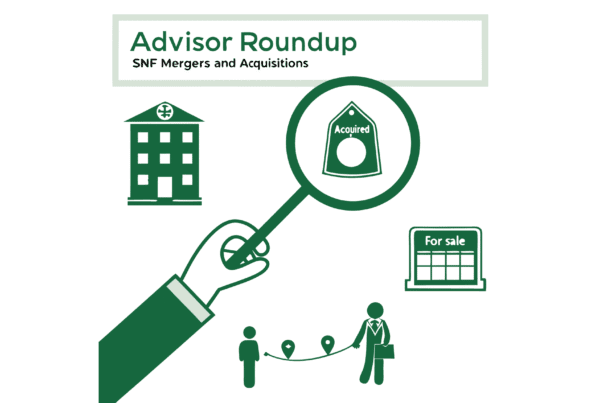If you own a geriatric behavioral health practice in Baltimore, you are in a uniquely strong market. Maryland’s rapidly growing senior population is fueling high demand for specialized care, and investors are taking notice. Selling your practice is a major decision that requires an informed strategy to achieve the best outcome. This guide provides a direct overview of the current landscape, key considerations, and the steps involved, helping you understand the path to a successful transition.
Curious about what your practice might be worth in today’s market?
Market Overview
The market for geriatric behavioral health services in Baltimore is driven by powerful demographic tailwinds. Maryland’s 60+ population is set to represent nearly a quarter of all residents by 2030, and Baltimore is a major center for this demographic. This growing patient base creates a predictable, long-term demand for your services. This demand has not gone unnoticed. The broader behavioral health M&A market saw transaction volume increase by 6% last year. Sophisticated buyers and private equity firms are actively seeking established, quality practices in high-growth areas like Baltimore to meet this expanding need. The conditions are favorable for practice owners considering a sale.
Timing your practice sale correctly can be the difference between average and premium valuations.
Key Considerations for Baltimore Sellers
Beyond market demand, buyers in Maryland look for specific signs of a well-run, low-risk practice. Your preparation should focus on these aeras.
-
Regulatory Standing Your practices compliance with maryland’s COMAR behavioral health regulations is non-negotiable for a buyer. The states moratorium on certain new behavioral health licenses, effective July 1, 2024, makes your existing, compliant license a significantly more valuable asset. It represents a high barrier to entry for competitors, which is a key selling point.
-
Workforce Stability The high demand for qualified counselors and therapists in Maryland means that a stable, experienced clinical team is a major driver of value. Low turnover and long-tenured staff demonstrate a healthy practice culture and operational strength, reducing a buyer’s post-acquisition risk.
-
Demonstrated Quality Buyers will review your reputation and quality of care, often assessed by organizations like the Behavioral Health System Baltimore (BHSB). A strong track record and any accreditations you hold are proof of the quality you provide.
Proper preparation before selling can significantly increase your final practice value.
Market Activity and Buyer Interest
The strong fundamentals in geriatric behavioral health have attracted significant attention from sophisticated buyers. We are seeing a notable expansion of private equity interest in the mental health space, specifically in Maryland. These groups are looking for established practices with strong operational efficiency and a solid footing with in-network insurance plans. They are not just buying a small business; they are investing in a platform for future growth. This level of buyer interest creates a competitive environment for sellers. When multiple well-funded buyers are looking, it often drives valuations higher. For strong practices, valuation multiples are currently ranging from 4x to 8x Adjusted EBITDA, with the most efficient practices commanding the highest figures.
The window of opportunity for optimal valuations shifts with market conditions.
The Sale Process Deconstructed
A successful practice sale is not an event, but a structured process. Running a professional process ensures you maintain confidentiality, create competitive tension among buyers, and avoid common pitfalls. Here is a simplified look at the key stages.
| Stage | Key Objective | Where Expert Guidance is Critical |
|---|---|---|
| 1. Preparation | Optimize financials and organize all documents. | To normalize your EBITDA and build a compelling growth story that justifies a premium valuation. |
| 2. Marketing | Confidentially find the best-fit buyer. | To access a proprietary network of qualified buyers without alerting staff, patients, or competitors. |
| 3. Due Diligence | Withstand intense buyer scrutiny. | To manage the information flow and prevent surprises that could lower the price or kill the deal. |
| 4. Closing | Finalize legal terms and ensure a smooth transition. | To negotiate the final purchase agreement and protect your financial interests and legacy post-sale. |
The due diligence process is where many practice sales encounter unexpected challenges.
How Your Practice is Valued
Your practices value isn’t based on revenue or what the equipment is worth. For sophisticated buyers, the starting point is Adjusted EBITDA (Earnings Before Interest, Taxes, Depreciation, and Amortization). Think of it as your true cash flow. We calculate this by taking your net income and adding back owner-specific perks or one-time expenses that a new owner would not incur. For example, we add back the portion of an owner’s salary that is above a normal market rate. This Adjusted EBITDA figure is then multiplied by a number (the multiple) to determine the enterprise value. For behavioral health, this multiple often ranges from 4x to 8x. The exact multiple depends on factors like your provider mix, payer contracts, and growth potential.
A comprehensive valuation is the foundation of a successful practice transition strategy.
Planning for Life After the Sale
The deal is not done when the papers are signed. A successful transition requires planning for what comes next, both for your team and for yourself.
Protecting Your Legacy and Team
A key part of the negotiation is ensuring the buyer is a good cultural fit who will protect what you have built. This involves finding a partner who values your clinical team and is committed to maintaining the quality of care your patients expect. The sale structure can also be designed to give you a continued role, if desired, ensuring a smooth transition of leadership and protecting your legacy in the community.
Understanding Your Financial Future
The way a deal is structured has a massive impact on your net, after-tax proceeds. Decisions around what portion of the payment is cash at closing versus a potential earnout (future payments based on performance) are critical. Some owners also choose to “roll over” a part of their equity, retaining a minority stake in the new, larger company. This allows them to benefit from the company’s future growth. Planning for these elements in advance is key to maximizing your financial outcome.
Your legacy and staff deserve protection during the transition to new ownership.
Frequently Asked Questions
What factors make Baltimore a strong market for selling a geriatric behavioral health practice?
Baltimore is a strong market due to Maryland’s rapidly growing senior population, which is expected to be nearly a quarter of all residents by 2030. This demographic growth creates a predictable, long-term demand for geriatric behavioral health services. Additionally, sophisticated buyers and private equity firms are actively seeking established practices in high-growth areas like Baltimore, driving competitive interest and favorable market conditions.
What are the key considerations for preparing my geriatric behavioral health practice for sale in Baltimore?
Key considerations include: 1) Regulatory Standing ‚Äì compliance with Maryland’s COMAR behavioral health regulations and maintaining an existing, compliant license, especially before the July 1, 2024 moratorium on new licenses; 2) Workforce Stability ‚Äì having a stable, experienced clinical team with low turnover; 3) Demonstrated Quality ‚Äì maintaining a strong reputation and accreditations, as assessed by organizations such as the Behavioral Health System Baltimore (BHSB). Proper preparation in these areas can significantly increase practice value.
How is the value of a geriatric behavioral health practice in Baltimore determined?
The practice’s value is primarily based on Adjusted EBITDA (Earnings Before Interest, Taxes, Depreciation, and Amortization), which reflects true cash flow by adjusting net income for owner-specific perks or one-time expenses. This figure is then multiplied by a valuation multiple, typically ranging from 4x to 8x in behavioral health. Factors influencing the multiple include provider mix, payer contracts, and growth potential. Revenue and equipment value are less critical in valuation.
What does the sale process of a geriatric behavioral health practice in Baltimore typically involve?
The sale process involves four key stages: 1) Preparation – optimizing financials and organizing documents to justify a premium valuation; 2) Marketing – confidentially finding the best-fit buyer without alerting staff or competitors; 3) Due Diligence – managing buyer scrutiny to avoid surprises that can reduce the deal value; 4) Closing – negotiating final legal terms and ensuring a smooth ownership transition. Expert guidance is crucial in all stages to maximize outcomes and protect interests.
How can I plan for my future and protect my legacy after selling my practice?
Post-sale planning involves selecting a buyer who aligns culturally and is committed to maintaining quality care and supporting your clinical team. The sale can include provisions for a continued leadership role if desired, facilitating a smooth transition. Financially, understanding deal structure, such as cash at closing versus earnouts or equity rollover, is essential for maximizing net proceeds and future growth participation. Planning ahead ensures your legacy and staff are well-protected during ownership transition.



